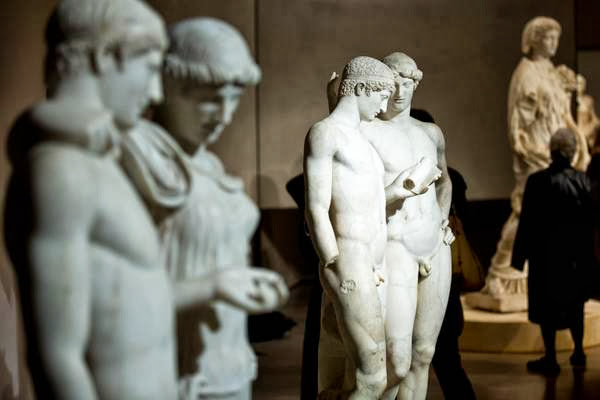On the occasion of the 2,000th anniversary of the death of the Emperor Augustus in 14 AD, a show at the Scuderie del Quirinale Museum from October 18-February 9 celebrates the life and achievements of this charismatic and intuitive political leader who also forged new esthetic languages, and who became a reference point under Napoleon as well Fascism.

Because Augustus was held dear in the Fascist imagination and his figure used for propaganda, there was an adverse reaction to this historical figure in the post WWII period. This is why Rome has not had an exhibition on him since 1937.
Now, 200 works on loan from major international museums celebrate the life and times of the founder of the Roman Empire.
Gaius Octavius Augustus was an astute man who defeated all his rivals in his quest for absolute power, led the empire to its maximum expansion during his 40-year rule, and finally deified himself.
''I had been trying to set up this show for decades'', explained Eugenio La Rocca, Rome's former culture superintendent. ''It has taken a huge effort on the part of everyone involved, given the costs of such an operation''.

The show also includes portraits of the emperor's family: his wife Livia, his sister Octavia, and nephews Marcello, Lucius Caesar and Gaius Caesar, whom he adopted to guarantee a succession on the throne. They all died prematurely.
There is also what could be a portrait of his enemy Queen Cleopatra of Egypt, as well as a series of reliefs of wild animals immersed in bucolic landscapes and nursing their young on loan from the Vienna Kunsthistorisches Museum, and a sculpture of the Niobids, which was put together from a Greek original in Augustan times, and here recomposed with two statues on loan from the Ny Carlsberg Glyptotek in Copenhagen and the Museo Nazionale Romano. The Louvre has loaned silver artifacts from Boscoreale, while the exhibit ends with the reconstruction of 11 reliefs decorating a monument that was originally built in Italy, and which are now divided between Spain and Hungary.
The cycle narrates the Battle of Actium of 31 BC, which was the decisive confrontation in the Final War of the Roman Republic between Octavian on one side and Mark Antony and Cleopatra on the other, paving the way for the ultimate triumph of Augustus.
Source: ANSA [October 17, 2013]